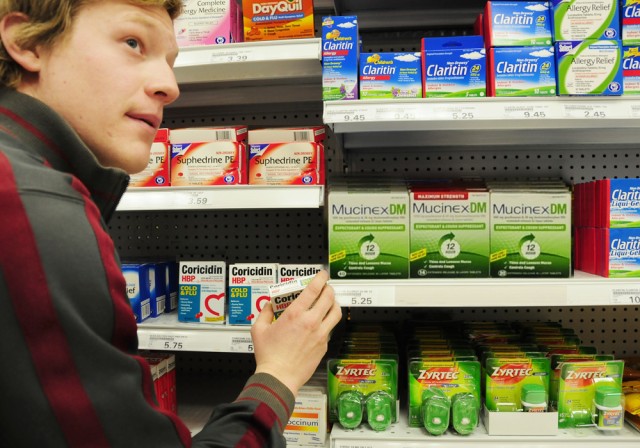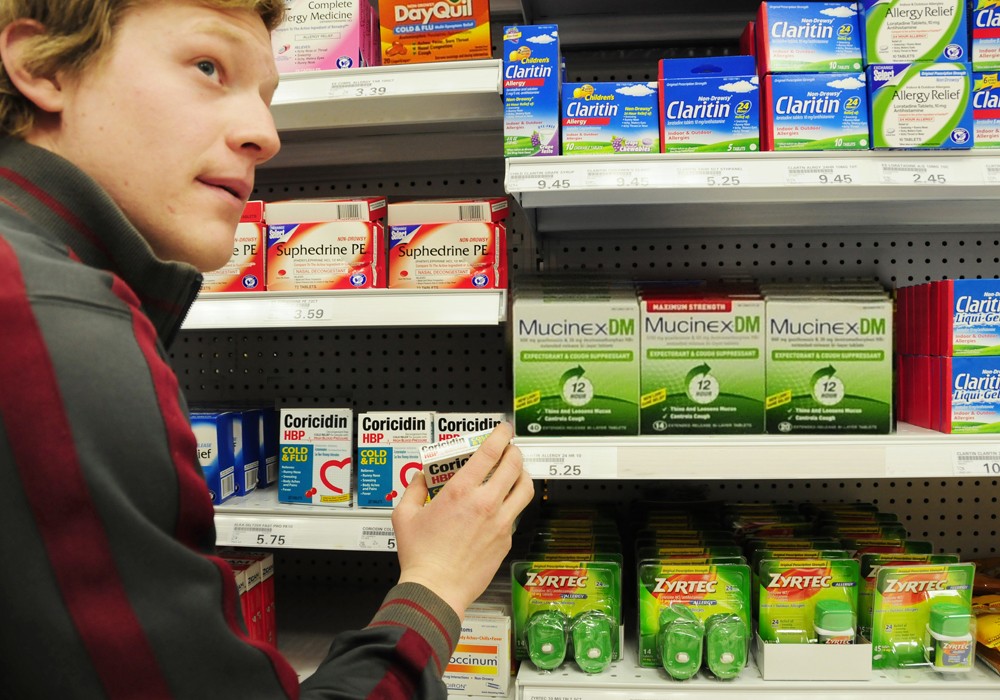GRAFENWOEHR, Germany -- A drug often used to coax coughing teenagers to sleep is now causing many parents to lose sleep -- with the possibility of teenage drug abuse lurking in every medicine cabinet.
Dextromethorphan, or DXM, is a common ingredient found in cough suppressants. And while this easily accessible drug may seem harmless, and even helpful, there is a growing concern within the Grafenwoehr military community regarding teenagers abusing DXM products.
In the past year, some Grafenwoehr community adolescents were hospitalized and several others received treatment for abuse or overdose of over-the-counter medications.
Duane Werner, principal of Vilseck High School, feels this issue is of major concern for the community.
"We live in a society that promotes drug usage (and) over-the-counter meds are too easily obtainable," said Werner. "Students do not realize the danger as they are legal drugs."
The effect of the drug varies according to a person's body size and genetic makeup but in general, at 100 to 200 mg, DXM is a mild stimulant. As the doses increase, users can experience euphoria, hallucinations and loss of motor control. However, many people will experience only extreme nausea and vomiting, causing serious injury and in some cases paralysis or death, according to the National Drug Education Council.
"We have had many students come forward to our counselors with concerns of their friends with the use and abuse of these meds," said Werner. "We know there is a problem in today's world ... and our student leaders are working with our counselors in an ongoing education effort."
Vilseck High School has instituted a vigorous education program that raises students' awareness to mitigate dangers of abusing over-the-counter medications.
However, this mitigation has extended beyond the doors of the high school.
Numerous community organizations including Army Community Service, Bavaria Medical Department Activity, and the Directorate of Emergency Services, have combined resources and created the Health Promotion Council's Youth Well-Being Working Group to address the concern and proactive measure on the health of community youths.
Col. Vann Smiley, commander, USAG Grafenwoehr, said the purpose of the group is to ensure the community is moving forward in a synchronized fashion to curb this problem and to identify any gaps.
Additional organizations involved include the Defense Commissary Agency and The Exchange, which combined carry more than 100 products containing DXM. Both organizations have responded to concerns regarding availability of the medicine by making it unattainable for anyone under the age of 18. Additionally, medications have been placed behind counters to deter shoplifting.
While the issue of abuse is not confined to the Grafenwoehr area, it is occurring within many military communities; one factor could be the stress that longer and more frequent deployments are placing on families. These children have an added stressor with the geographical distance from one parent and a change in roles and family dynamics within the home during these deployments.
In response, the Adolescent Substance Abuse Counseling Service (ASACS), a military outreach program aimed at youth ages 12-18, is currently providing counseling and treatment, as well as prevention education regarding substance abuse to at-risk adolescents.
"Our goal is to create an informed community" said Nancy Nolin, a clinical supervisor for the organization. "Through educating both students and parents on the physical, mental and academic risk factors of abusing DXM, we arm them to make informed choices when faced with the decision to use."
But talking to students isn't always enough, Nolin said.
"It is our role as ASACS counselors to teach youth valuable life skills so that they are better equipped to cope with anger, anxiety and peer-pressure," she said, adding that children with a positive self-image are less likely to abuse drugs.
"Military children are constantly moving through a continuum of change. The key is prevention," she said. "It's an ongoing process and a community effort."


Social Sharing